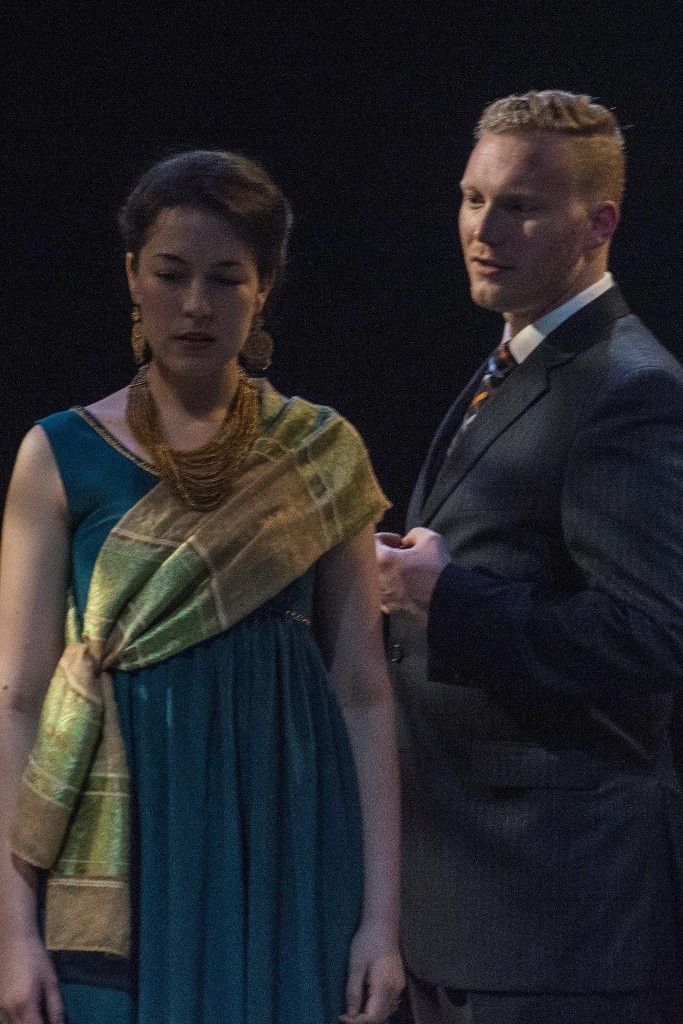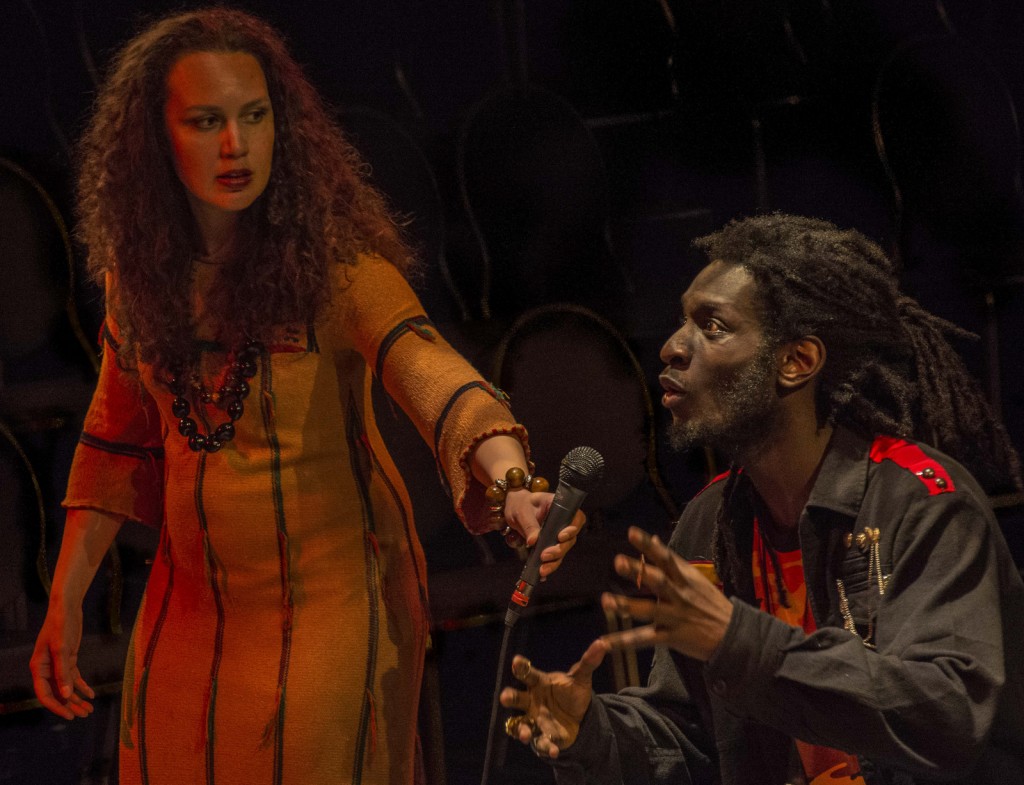
Credit: Nancy Caldwell
At Jericho Arts Centre until April 19, 2015
604-224-8007/unitedplayers.com
Posted March 29, 2015
A little knowledge is a dangerous thing and it can ruin an evening at the theatre.
I have read all the major Greek comedies and tragedies and am reasonably familiar with the dramatis personae in Sophocles’ Theban trilogy. But I wallowed around in British playwright Moira Buffini’s political allegory trying to find her characters’ counterparts in the Theban tragedies – and it simply didn’t work. Eurydice, for example, in Welcome to Thebes, is the widow of Creon, King of Thebes. She is the president of the newly democracy of Thebes. But Sophocles tells us that Eurydice kills herself (“with her own hand/She drove the sharp sword home into her heart”) and Creon lived on to rue the day he denied the burial of Polynices, Antigone’s brother. Tydeus doesn’t appear at all in the trilogy but figures large in Buffini’s play. Perhaps if I had never read the Theban plays, I would have been better off. I should have quit trying to put the pieces together.
I certainly wouldn’t have been so lost if I knew more about Liberia, the setting – possibly, probably – of Welcome to Thebes. The program notes only say, “A city named Thebes, somewhere in the twenty-first century”. And I didn’t know, to my chagrin, that Ellen Johnson Sirleaf, a Harvard-trained economist and former Minister of Finance of Liberia, was elected president – and the first female president in Africa – in 2005.
Seeing Welcome to Thebes with a little knowledge – but not enough – left me completely in the dark and very frustrated.
For a well-informed analysis of the play, I refer you to Michael Billington’s June 2010 review in The Guardian: https://www.theguardian.com/stage/2010/jun/23/welcome-to-thebes-live-review.
In this United Players’ production, under the direction of Brian Parkinson, there are more than two dozen performers on stage. There are accents from all over the place: English, Australian, maybe French, maybe Spanish, American and possibly more. Although all the characters have names from Greek tragedy, they are politicians or bureaucrats in either an unnamed African nation or, we assume, in the US. Theseus, for example, seems to be an American president to whom Eurydice turns for aid.

Credit: Nancy Caldwell
Why not, I have to ask, simply write a play about Sirleaf’s struggle with the US government? If there are parallels past and present, would we not have twigged to them?
However, there are some excellent performances in this production, notably elegant MariaLuisa Alvarez as a gracious, dignified Eurydice, plagued by rebels and manipulated by Theseus. Jordan Navratil is outstanding as the arrogant, demanding Theseus surrounded by his aides and bodyguards; Marion Landers is a passionate Pargeia, in cahoots with rebel leader Tydeus, enthusiastically portrayed by Rema Kibayi. Mandana Namazi is a sparky little Aglaea and Morgan Churla does a fine job of Talthybia’s kid-glove, bending-over-backward’s handling of Theseus.
Costumes, designed by Lisa Sadler, are contemporary, with a few exceptions: power suits on the bureaucrats and politicians; military uniforms on the soldiers; rags on Tiresias (Kurtis Maguire) and his aid (Kuei-ming Lin); a toga-like robe – not sure why – on Pargeia; and slim, elegant, floor-length gowns on Eurydice.
Welcome to Thebes is long and I was lost. Two observations, however: friends – a retired SFU professor and his partner – said they had seen Welcome to Thebes in London and had been similarly bewildered. The second time around, they said, was much more satisfying. And a colleague, a well-respected actor and theatre patron, said he was “deeply moved” by the production.
Read Billington’s review. Brush up on Sophocles’ Antigone. Or maybe not. If you don’t know enough about Liberia, do some reading. Check out United Players’ Spotlight on Welcome to Thebes at www.unitedplayers.com/Pages/spotlight.html. It’s a challenging, frustrating play but United Players has never let that stop them.

